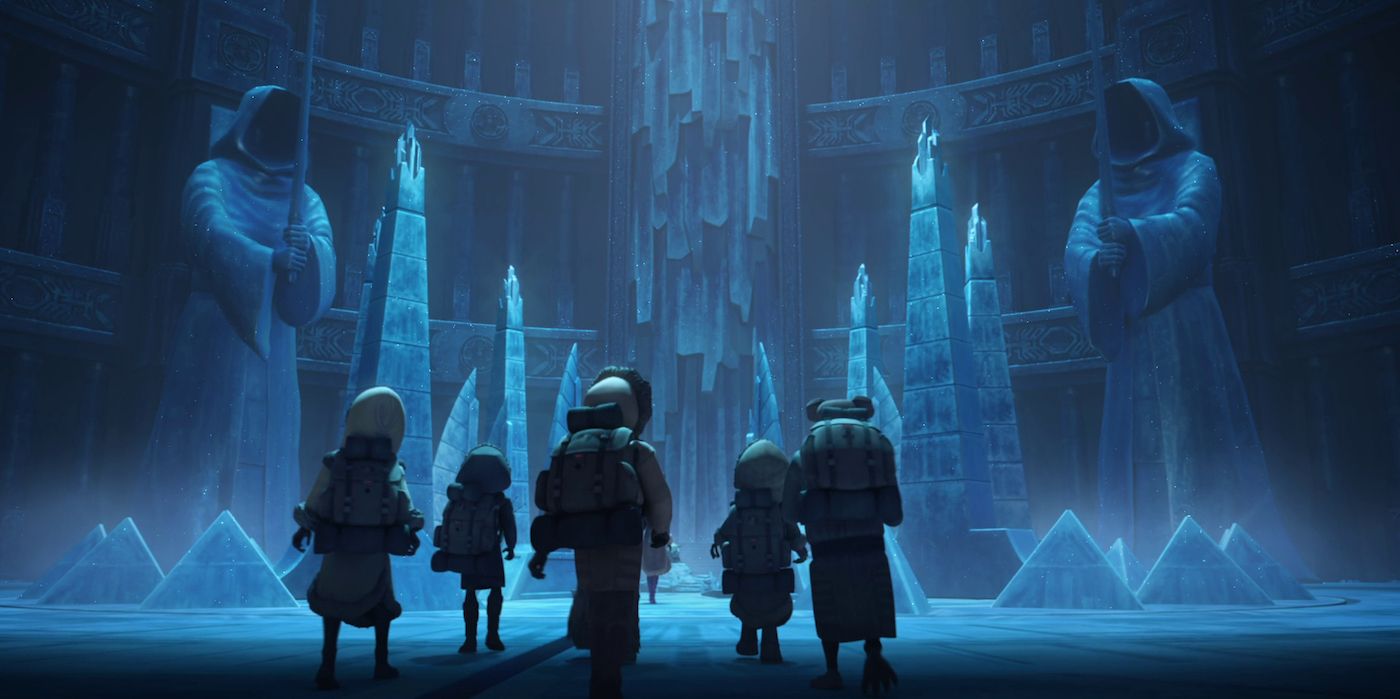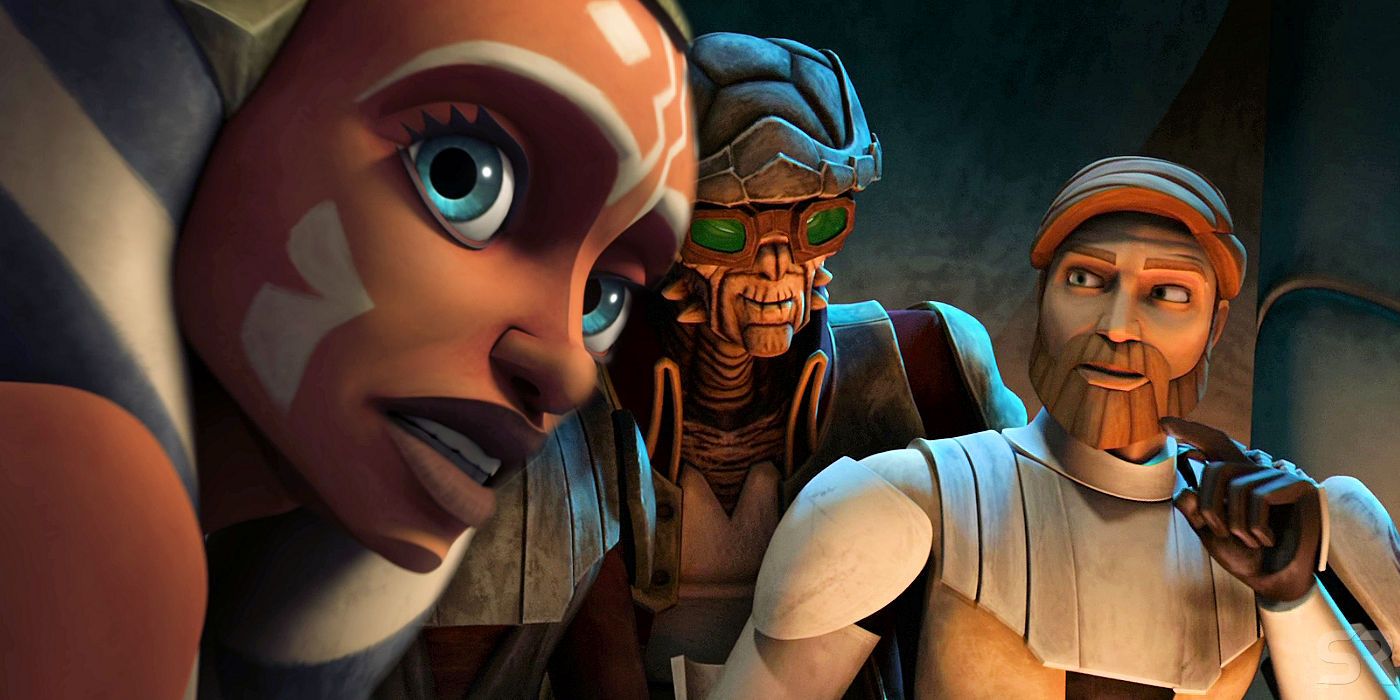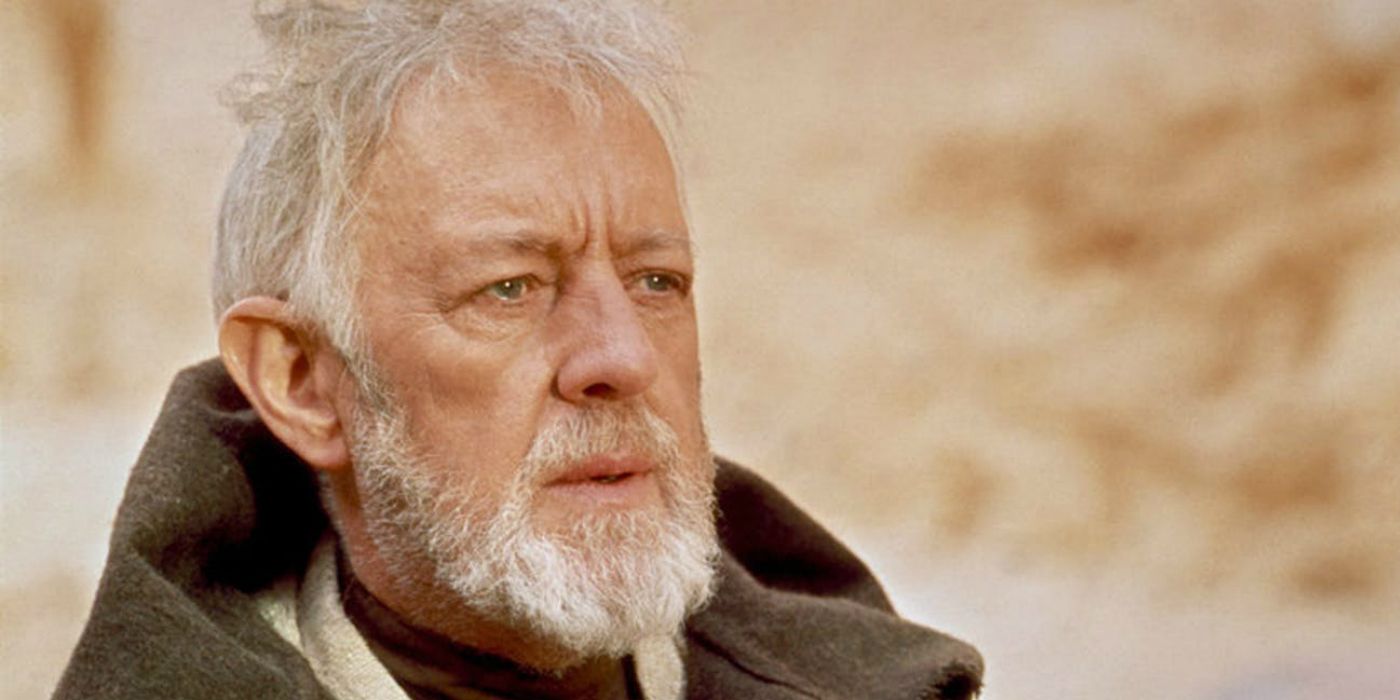Star Wars: The Clone Wars improved and expanded upon Anakin Skywalker's prequel arc. It has been said that the Skywalker Saga is the story of Anakin/Darth Vader, as well as the aftermath of his life choices. Though the series of events in the prequel trilogy that set him on his path to the Dark Side were fine and made narrative sense, there were a few aspects of his personal story that never got the attention they deserved. Thankfully, The Clone Wars came to the rescue in that regard, polishing the Chosen One's character arc.
Set between the events of Star Wars: Episode II - Attack of the Clones and Star Wars: Episode III - Revenge of the Sith, The Clone Wars acted as a way to make sense of what exactly was going on in the galaxy at that point in time. The prequels packed in plenty of big topics, from political discourse to moral conundrums that never had time to be explored in a comprehensible way. Not to mention plenty of characters and worlds were introduced that were only given a sliver of screen time. The scope was too big for a trilogy of 2-hour-long films.
In clarifying many of the prequels biggest questions and plot elements, one of the many characters that got time to develop further was Anakin Skywalker. Obviously one of the most important characters in the show, across its 6 seasons Anakin was not only able to evolve as an individual, but his push toward the Dark Side became even stronger. With all of this newly established structure for the character, his portrayal in Revenge of the Sith came across as even more significant yet understandable.
The Distrust of the Jedi
The Clone Wars furthered Anakin's distrust for the Jedi Order, something not given much attention outside of a couple scenes in the prequels. Throughout the series, a great amount of focus is put on the Jedi, not simply in terms of dazzling lightsaber duels, but rather in a moral and philosophical sense. What do they truly stand for? Are they truly good? Can they be good in times of war? Questions like these among others are presented in ways that both prove and highlight the hypocrisy of the Jedi and their belief system. It is clearly flawed - something Anakin is aware of. On many occasions, Anakin challenges the Order, calling them out on their broken way of life.
From the moment he stepped foot in the Jedi temple in Star Wars: The Phantom Menace, there has been a clear divide between Anakin's beliefs and those of the Jedi. He wants to love, help people without reimbursement, and do what is morally right. The Jedi simply want to keep the peace, ignoring the ugly stuff. Both sides feel that they are right in how they operate, which pushes them to further mutual distrust. This is why instances such as in Star Wars: Revenge of the Sith when Anakin is appointed to the council but is not given the rank of master, he erupts. His frustration is detailed in the show, as this was hardly the first time the two sides opposed one another. It makes his transformation into Darth Vader all the more anticipated.
The Loss of Ahsoka Changes Everything
Following accusations of bombing the Jedi Temple, which she was wrongly labelled for, Anakin's padawan Ahsoka Tano decided to leave the Jedi Order behind. The idea of Anakin having an apprentice in the first place was divisive in the eyes of many, but Ahsoka undoubtedly became one of the series most popular characters. The relationship she had with Anakin was incredibly well executed and allowed both to become more mature and well-rounded over time. Her choice to leave the Order was devastating for Anakin, who was the only one to stand up for her, even after it was revealed she was not responsible for the attack.
It was this event that sent Anakin further down his path of disillusionment with the Jedi Order. They offered to bring Ahsoka back in, but clearly felt no remorse for what they put her through. Their attempt to play off the situation as her final test was fake, and both Ahsoka and Anakin saw right through it. The Order pushed her away, and knowing how difficult it is for Anakin to let go of the people he cares most about, this would harm the image of the Jedi in his mind tremendously. Though Ahsoka was not at the forefront of Lucas' mind when he came up with the prequel trilogy, in hindsight her story and connection to Anakin was woven into the narrative seamlessly. Her involvement in Anakin's life, as well as the war at large, could be felt in Revenge of the Sith and beyond.
Obi-Wan's A New Hope Characterization is Realized
During the events of Star Wars: A New Hope, Obi-Wan Kenobi describes Anakin to Luke, who never got to know much of his father's true life. Kenobi explains that his former pupil was "the best star pilot in the galaxy, and a cunning warrior" as well as "a good friend." Of course, these are all descriptors touched on in one way or another in the prequel trilogy, however they never got more than a nod before the story demanded the focus be shifted. The Clone Wars gave all of these qualities a little more time to expand.
The show put Anakin in any number of environments, from the cockpit of his starfighter to clashing blades with Count Dooku. With the series running for 6 seasons - with The Clone Wars season 7 on its way - there was plenty of elbow room for Anakin to be fully realized as a character, individually and in regards to his interactions with others. The adventures he went on with Obi-Wan strengthened their bond and their understanding of one another. In doing so, not only was Anakin's personality and skill set added to in a logical way, but the series retroactively further elaborated on his Star Wars: A New Hope characterization, courtesy of his former master.
As it stands, there isn't anything particularly wrong with how Anakin was portrayed in the prequel trilogy. While his representation was bare bones, really only giving audiences the necessary elements of his character, it worked to an extent. Thankfully, Star Wars: The Clone Wars took a look at who Anakin was in Star Wars: Attack of the Clones, as well as Star Wars: Revenge of the Sith, and expounded upon the changes made to his attitude that altered his character further. It provided for moments that would forever become a part of his character, even into his years as the Dark Lord of the Sith.




